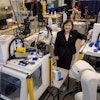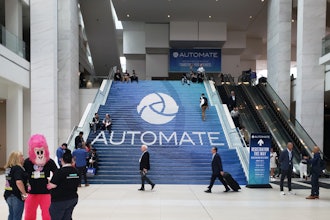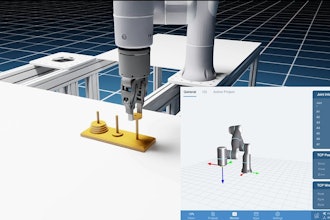We all have things that make our jobs challenging, at least some of the time. Personally, I feel like the industry I chose, enterprise software, is pretty hard, but it doesn’t hold a candle to how brutally hard the automotive industry is.
Consider:
They deal with a global, complex supply chain in which any interruption, whether political, natural, or self-inflicted, can have rippling effects with disastrous results. The number of pieces that go into a modern vehicle, and the degree to which their production has to be planned and coordinated, is nothing short of outstanding.
They are heavily regulated because when they mess up, people can die. All the airbags in the world won’t help a company that introduces a software flaw that, say, punches the accelerator when you turn on the wipers (make no mistake, that gas pedal is not connected to anything more than a digital sensor that can get its signals crossed just like anything else).
The product they build is an engineering marvel and therefore at least as complicated as it is impressive. But there’s no technological moat commanding fat margins—due to intense competition from all sides, they pour billions into capital projects and R&D, not to widen their lead, but to survive.
And they’re expected to innovate every year, like clockwork. If Fall comes around and they’re not introducing a new model, something is wrong. That pace of incremental evolution would be brutal enough, but on top of it they’re also dealing with potentially existential threats that could turn their whole business inside out—self-driving cars, electric vehicles, share vs. buy business models… Japan’s now even trying to introduce IRL flying cars!
(As an aside, if the pace of innovation for cars seems natural, compare a car now vs. one in the 90s to an airplane now vs. one in the 90s. Not only does the plane look and feel the same—it probably is the same plane.)
When we look at all these challenges, what is one clear and pervasive lesson we can draw from the auto industry? That in spite of all these obstacles, or probably because of them, they’re still able to maintain an insane focus on quality.
My wife and I bought a new car about a year and a half ago, our first in almost twenty years. Six months into our ownership we realized we were probably overdue for an oil change. We called the dealer to ask if we should bring it in and they practically laughed at us—it turns out that new cars’ engines are such tightly closed-loop systems that they only need their oil changed at most once a year—and you don’t have to remember because the car will let you know on its own.
Pretty much any model you buy that was designed after 2000 will be such a high-quality piece of manufacturing that it’ll last for as long as it takes you to get bored of it.
How do they do it? Although most automotive OEM’s have a lot of built-in inefficiencies, one area in which they excel is through well communicated, industry-wide standards. IATF 16949 (the auto industry’s version of ISO 9001) went into effect this month, September 2018, and it’s a perfect embodiment of that quality-centric spirit.
There’s no magic sauce in the standard—exhibit good leadership, communicate, find and resolve defects, and continually improve. It’s not magic, but it’s exact, explicit, and expected.
Write down what’s important to you and execute on it. Something we could all stand to do more of.
Chris Moustakas is President and CEO of DevonWay.






















